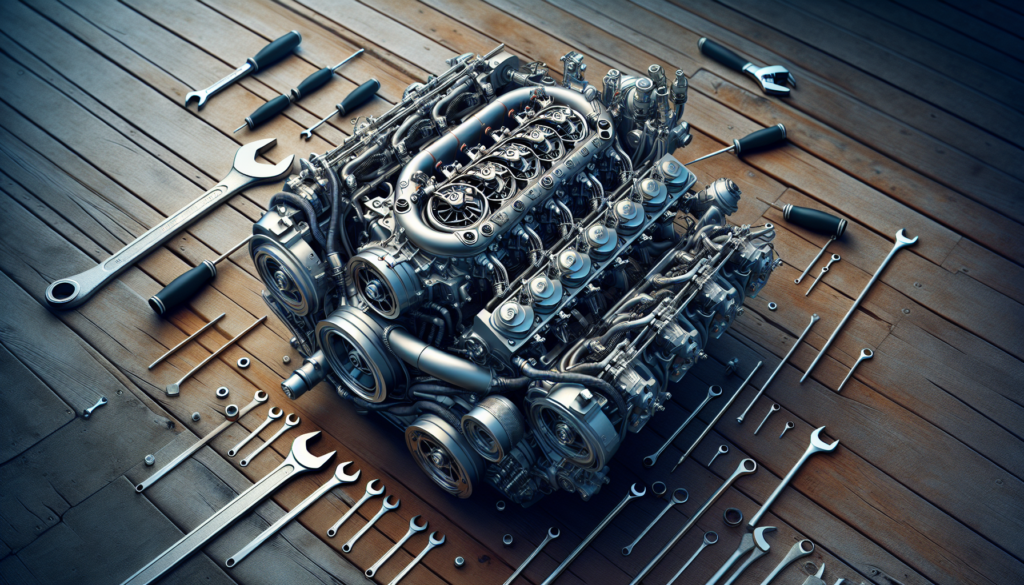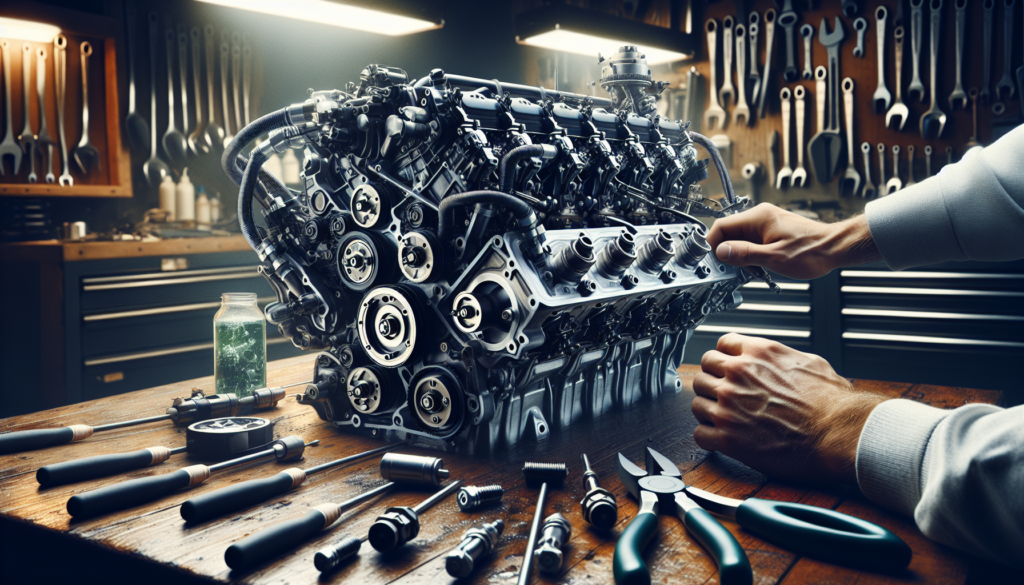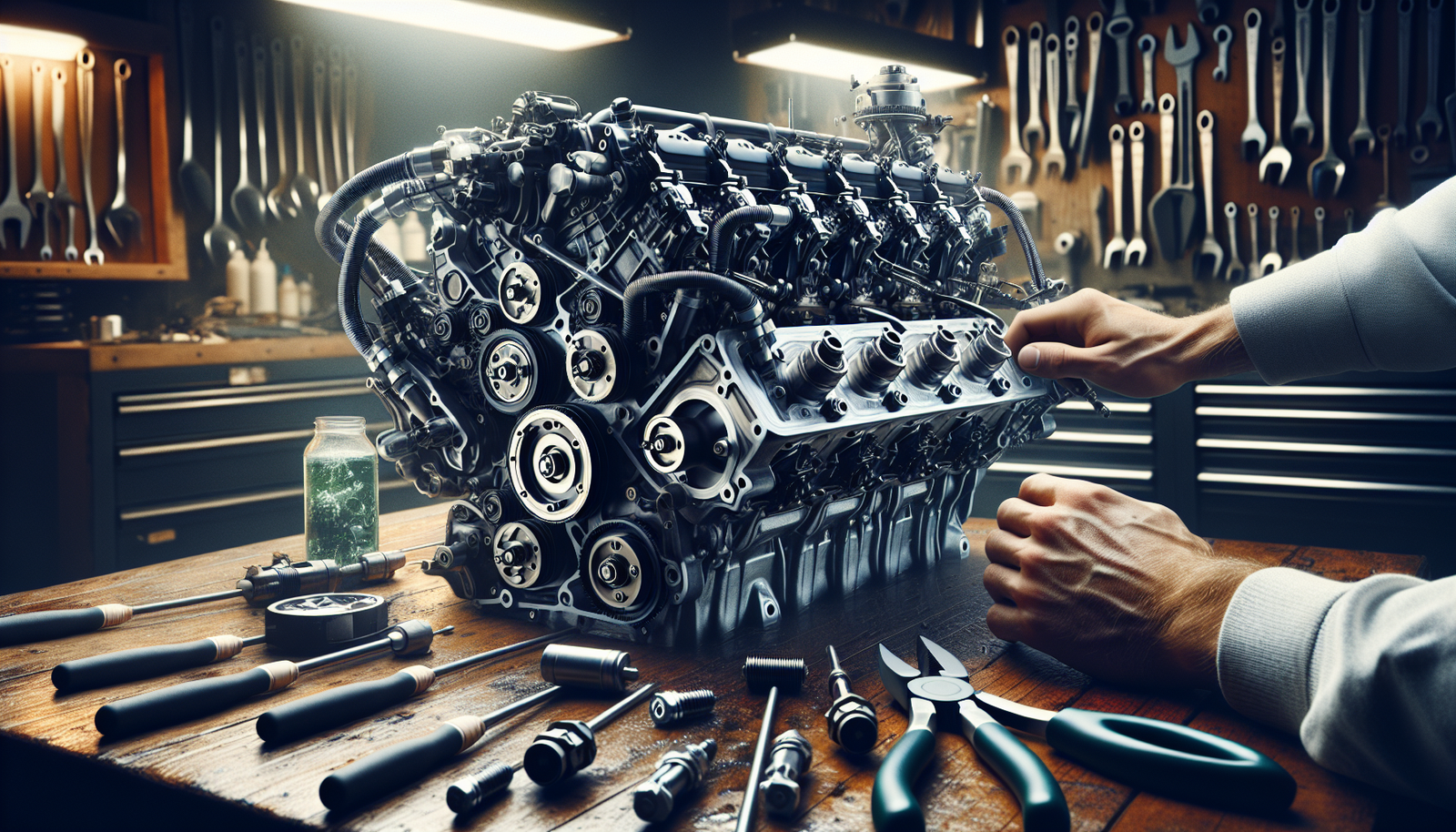Isn’t it a wonderful day to learn something useful? Imagine this scenario: you’re gliding across the water, the sun on your skin and the wind in your hair. Suddenly, there’s a distinct knocking sound reverberating from your boat engine. This unwanted noise can turn your serene marine journey into an alarming ordeal. But, don’t worry. You’re about to acquire an invaluable skill set that will help you diagnose and rectify the vibration issues that you may face with your boat’s engine. Now, prepare yourself to perceive and rectify any such issues seamlessly. “How To Detect And Fix Boat Engine knocking” will be your insightful guide.

Understanding the Boat Engine
Before delving into how to detect and fix boat engine knocking, it’s important to first understand the basic workings of your boat’s engine. This understanding will equip you better in maintaining and troubleshooting your engine.
Basic structure and functionality of a boat engine
A boat engine, much like other engines, takes fuel, ignites it, and converts that power into movement. It’s a system of parts working together for effective propulsion. The primary components include the engine block, pistons, crankshaft, and the fuel and exhaust system.
Key components and their functions
The pistons are crucial as they move up and down within the cylinder which is contained within the engine block. The up-and-down movement of the pistons turns the crankshaft producing the necessary power to move the boat. The fuel system takes care of the delivery of fuel, while the exhaust system removes combustion by-products.
Understanding common problems with boat engines
Common problems that could arise in a boat engine generally include engine knocking, poor performance, overheating, and oil leaks. Today, we are focusing on engine knocking, understanding the symptoms, causes, and how to diagnose and address this specific issue.
Identifying the Symptoms of Engine Knocking
Engine knocking is an issue that you wouldn’t want to overlook as it indicates a significant problem with your engine’s internal components. The key to resolving this issue is to identify it early.
Recognizing abnormal sounds
Engine knocking is usually characterized by a knocking sound that’s persistent when your engine is running. It may be subdued at idle but gets louder as the engine revs up.
Tracking the source of the noise
This requires careful listening to pinpoint exactly where the sound is emanating from. It could be from a number of areas like the cylinder, cranks, or pistons.
Ruling out other possible causes
Several conditions may mimic engine knocking, including exhaust leaks or loose pulleys. After you have ruled out these, then you can be certain you’re dealing with engine knocking.
Reasons for Boat Engine Knocking
Understanding the reasons for engine knocking is essential in devising the right solutions. Here are some common reasons:
Fuel problems
Incorrect fuel can cause the engine to knock. Make sure to use the right grade of fuel for your engine.
Wear and tear
With time, different components of the engine wear and this can result in engine knocking.
Mechanical issues
Engine components can malfunction leading to knocks. For instance, if your rods or pistons get bent, they might knock against the cylinder wall.
Engine timing problems
If your engine timing is off, it can lead to knocking. This usually happens when the fuel-air mix in the cylinder detonates at the wrong time.
Oil contamination
Contaminated or poor-quality oil can degrade performance and eventually lead to engine knocking.

Steps to Diagnose Boat Engine Knocking
Once you identify engine knocking, the next step is to diagnose the specific issues. Here are some steps you can take:
Inspect engine visually
Look for visible signs of wear and tear or component damage, which may be the cause of the knocking.
Use a screwdriver or stethoscope
Use a screwdriver with your ear against the handle or a mechanic’s stethoscope. Move it around the engine to pinpoint the location of the sound.
Perform a ‘power balance test’
This involves removing one spark plug wire at a time while the engine runs. If the engine runs smoother when a plug is removed, that cylinder may be the source of the knocking.
Compression test for cylinders
A compression test can help determine if there’s any cylinder leakage, which might lead to engine knocking.
Checking for oil leaks
Oil leaks can lead to oil starvation, causing the engine to knock. Check for any visible leaks around the engine.
Addressing Fuel-Related Issues
If the engine knocking is linked to fuel-related issues, here’s how to address them:
Checking the fuel filter
Clogged filters can restrict fuel flow causing a knock. Check if the filter needs replacement.
Checking the fuel pump
Inspect the pump to ensure it’s providing an adequate fuel supply to the engine.
Using the right fuel type
Poor quality or the wrong grade of fuel can lead to knocking. Always use the recommended fuel type for your particular engine.
Possible need for a fuel add-on
If you use ethanol-based fuel, it may need an additive to prevent damage leading to engine knocking.
Fixing Mechanical Problems
If mechanical problems are behind the knocking, you may want to:
Assess the engine’s timing
Make sure the timing of fuel ignition is correct. You can use a timing light for this.
Checking the engine’s oil pressure
Low oil pressure can cause knocking. Be sure to check the oil pressure on a regular basis.
Examining the piston, rods, and bearings
If there are signs of wear or damage in these components, they may need to be repaired or replaced.
Looking for signs of wear and tear in key components
Regularly check all engine components for wear, tear, or damage.
Dealing with worn-out carbon deposits
Accumulated carbon deposits can cause knocking. Cleaning your engine can help here.
Dealing with Timing Issues
Accurate engine timing ensures smooth engine running and peak performance. If you’re dealing with timing issues, consider below points:
Understanding the importance of accurate engine timing
Proper engine timing ensures that fuel combustion occurs at the right time. Incorrect timing can cause engine knocking.
Identifying signs of incorrect timing
Uneven running, knocking, or reduced engine output could all signify incorrect timing.
Adjusting the engine’s timing
Make necessary adjustments using a timing light to ensure that fuel combustion happens exactly when it should.
Addressing Engine Oil Issues
Oil plays a crucial role in engine health which if compromised can give rise to knocking. Addressing oil issues involves:
Determining signs of oil contamination
Dirty oil, increased oil consumption, or decreased engine performance could indicate oil contamination.
Choosing the right engine oil
Use high-quality oil designed for marine engines. Make sure it’s the right viscosity and grade for your engine.
Changing engine oil at the right time
Follow the manufacturer’s guidelines on when to change your engine oil to ensure it’s always fresh and effective.
Looking for oil leaks
Apart from externally visible leaks, check the bilge for oil. Oil leaks can cause oil starvation leading to engine knocking.
Preventive Measures to Avoid Boat Engine Knocking
Prevention is always better than cure – and this holds true for engine knocking too. Here are some preventive measures:
Maintaining engine components
Regular maintenance of all engine components reduces the chances of wear and tear.
Regular oil changes
Adhere to the recommended schedule for oil changes. Fresh oil ensures the continued smooth running of your engine.
Using the correct fuel
Always use the correct grade and type of fuel as recommended for your engine.
Regular engine checks
Timely detection of issues by regular engine checks helps avoid major issues like engine knocking.
Addressing issues early
When you notice signs of potential problems, address them immediately before they escalate to engine knocking.
When to Seek Professional Help
Sometimes, despite your best efforts, some engine problems might persist. Here’s when you should seek professional help:
Complexity of the issue
Some engine issues are complex and may need expert diagnosis and repair.
Lack of necessary tools
You may not have all the necessary tools to perform certain repairs.
Need for major engine repairs
Some issues may require major parts replacement, which is best handled by professionals.
When the engine knocking persists despite efforts
If persistent knocking continues despite your efforts at resolution, professional intervention is advisable.

